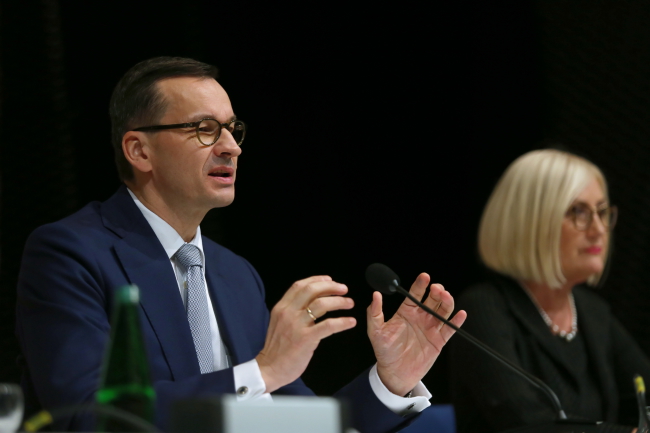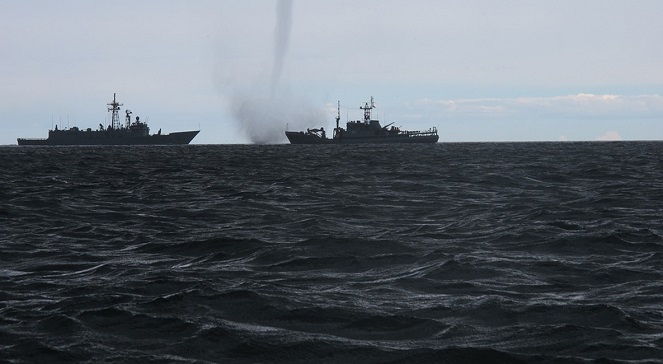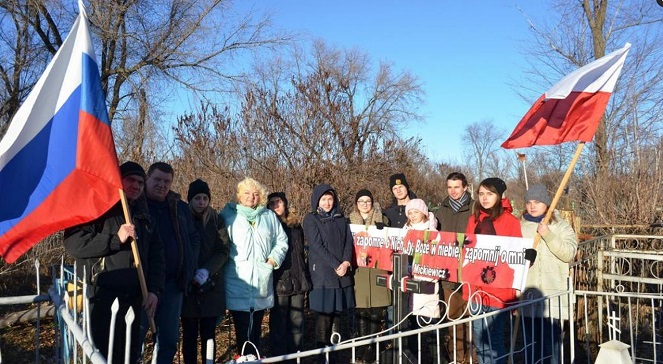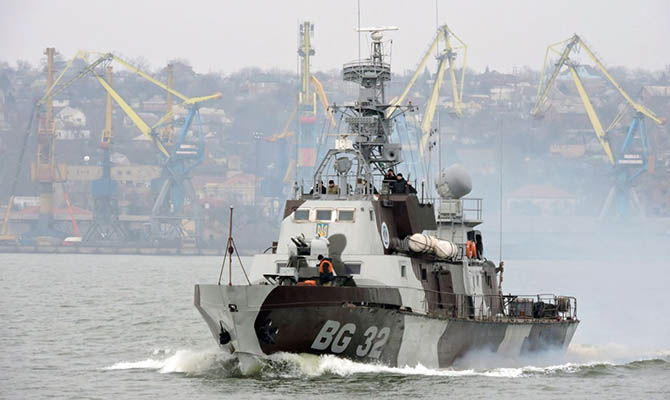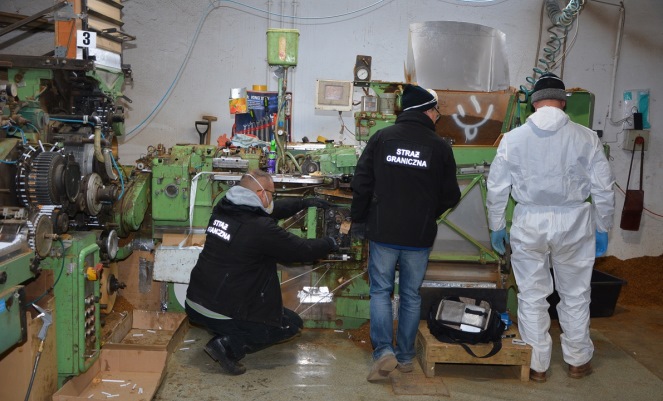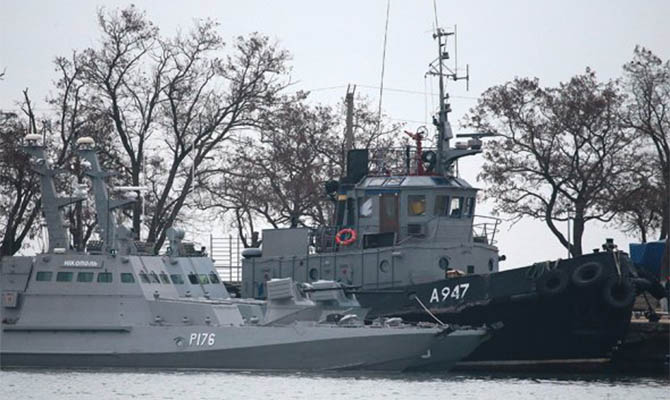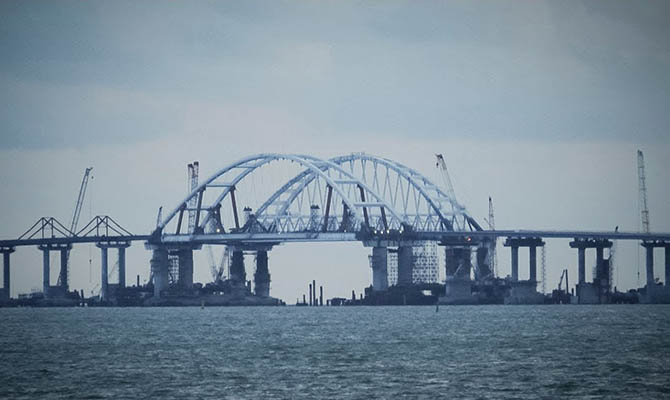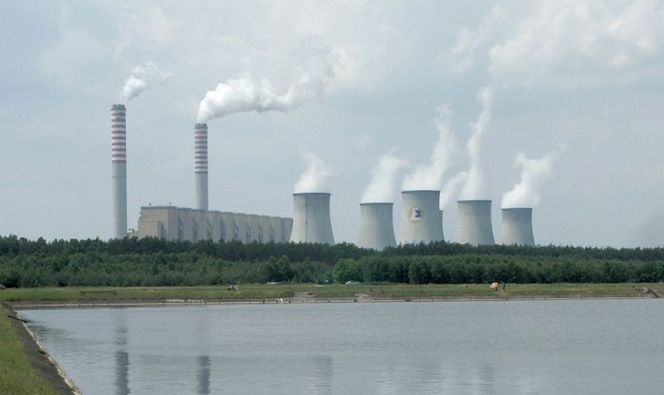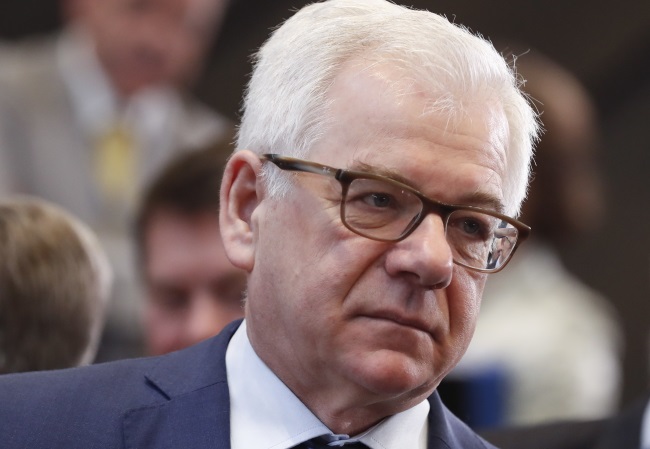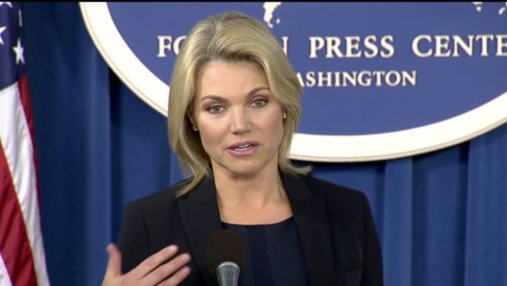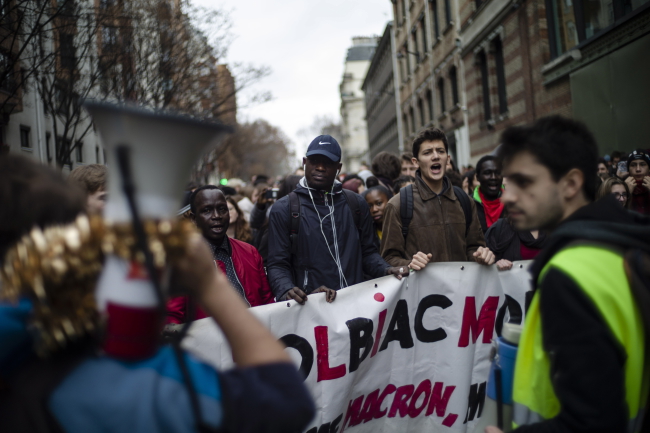Left with nothing | Последние новости сегодня в мире
Left with nothing

Nawal al-Maghafi meets Yemenis struggling to survive severe food and medical shortages caused by war.
The UNs appeal for $2.9bn in aid for Yemen is only 39% funded Sadly, Samiras case was far from being an isolated story - indeed, it was the first of many I would encounter on my journey across Yemen. Everywhere I went, I saw more people suffering from desperation, grief and defencelessness.In the rebel-controlled north of the country, we visited clinic after clinic, all packed with patients infected with cholera. At one site I met a family of 18, all suffering from the disease. It may sound perverse to say so, but these were - in many ways - the lucky ones; the people who were able to undertake and afford the journey to get treatment. More than 2,000 people are believed to have already died as a result of the cholera outbreak - the largest in the world - and 540,000 others have been infected. Because of the war more than half of all health facilities have closed or are only partially functioning, leaving 15 million people without access to healthcare. Yemen crisis: Who is fighting Whom Yemen conflict: How bad is the humanitarian crisis Yemen conflict: Cholera risk for more than a million children As we ventured further out into the countryside, we reached a village an hour-and-a-half from the nearest medical facility. There we found people in their homes or communal areas, lying on the ground or on beds, all suffering from cholera-like symptoms. I spoke to Abdullah and his sister, Hind, asking them why they had not gone to a hospital. He could barely summon the energy to reply. "We dont have the money for the transport," he explained, matter-of-factly. "This war has left us with nothing." DesperationWhile modern Yemen has always been poor, things have never been this bad for its citizens. Two-and-a-half years of war have unleashed what the UN is now officially calling the worlds largest humanitarian crisis.Seven million Yemenis are considered severely food insecure. Three-quarters of Yemens 27 million people depend on some form of humanitarian assistance, though one does not need statistics to know this. Everywhere I went, beggars lined the streets on a scale I had never witnessed in the country before. While driving in Hudaydah I was surprised that tens of beggars approached my window when I stopped at a junction. One of them was an old lady, who fixed me in the eyes through the glass. Image caption Three quarters of the population depend on some form of humanitarian assistance As I lowered my car window, she told me: "This is how desperate they have made us! My sons are now without salaries. Now Im spending my last days in this world begging to feed them." With no public sector workers being paid for more than a year, her story is that of millions of Yemenis - from traffic wardens to teachers - reduced to begging to feed themselves and their children. Deadly blockadeA blockade imposed on Yemen since 2015 by the Saudi-led coalition has reduced the amount of food, aid and fuel allowed into the country to a trickle. The little that does make it in by sea often spends weeks waiting to be offloaded because the cranes at Hudaydah - once Yemens busiest port - have been bombed beyond use or repair. When new cranes were donated by the US government to the UNs World Food Programme (WFP) last December, they were stopped at sea by the coalition and refused entry. While visiting Hudaydah, I met David Beasley, the WFPs Executive Director, who was conducting an inspection visit."Food and aid should be weapons of peace and not used as weapons of war", he told me, adding ominously: "If these cranes do not make it in, hundreds of thousands of Yemeni children will die."In addition to reducing imports, the blockade has made the cost of distribution so high in Yemen that whatever food does make it onto the shelves is too expensive for the vast majority of people. Image caption More than 2,000 people have died in the cholera outbreak Even aid agencies are struggling to fund deliveries, because so much must be spent on transportation rather than the supplies themselves. Despite the enormous scale and urgency of the crisis, the UNs aid appeal has reached only 39% of its $2.9bn (£2.3bn) target.Meanwhile, Yemens health ministry says the closure of the airport in the rebel-controlled capital, Sanaa, has led to some 10,000 deaths from treatable illnesses because people cannot travel to receive medical care. The coalition has said the blockade is in place to ensure that no weapons are smuggled into Yemen and denied that it is intentionally targeting civilians in the war. Image caption Shortages of food have made many children more vulnerable to cholera Wherever you go in Yemen, shortages of food and medical supplies are on an unimaginable scale. And yet, because of the political realities of the conflict, the country simply does not have the capacity to deal with the humanitarian catastrophe. Of course, this is not to say that the Houthis and their allies are blameless in Yemens tragedy. They too have been accused by human rights groups of killing civilians and violating the laws of war - charges they have denied.The rebels are also alleged to have impeded the distribution of aid on the ground. Image caption Yemens hospitals are struggling to cope with the crisis I do not know what happened to Samira and Orjowan, as well as Abdullah and Hind and the rest of the people in their village. The tragedy of cholera is that it is both easily treatable, yet fatal within hours if left untreated.What is most heart-breaking about Yemens humanitarian catastrophe is that it is completely and needlessly man-made. All the suffering we witnessed was completely preventable and could be stopped within days if the political will - by the warring factions and their supporters abroad - was there to do so.In the meantime, as international diplomacy continues to fail Yemenis, their lives will - unimaginably - only get worse. Related Topics Yemen Yemen crisis
- 2017-08-24 03:01:11
Порошенко вновь призвал Россию без каких-либо условий освободить украинских военных моряков

- 2018-12-07 13:30:26
В РАЗУМНОЙ СИЛЕ заявили, что украинская власть и криминал – одно неделимое целое (ВИДЕО)

- 2018-12-07 13:30:26
Не накачивайте регион оружием: Беларусь предостерегла Европу перед новой эскалацией

- 2018-12-07 13:30:23
Никаких наблюдений, никаких посредников, - Лавров о предложении Германии расширить мандат ОБСЕ на Азовское море
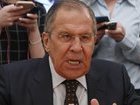
- 2018-12-07 13:30:21
Не накачуйте регіон зброєю: Білорусь застерегла Європу перед новою ескалацією Країни ОБСЄ повинні зупинити накачування регіону летальним зброєю, щоб не провокувати ескалацію конфліктів в Європі. У Білорусі вважають, що організації не вдається вирішув

- 2018-12-07 13:01:35
США готовят ответ Путину из-за агрессии на Азове: в России напуганы кораблями НАТО
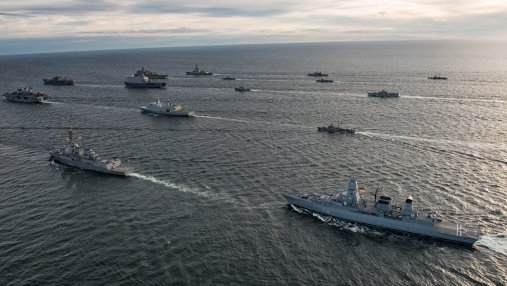
- 2018-12-07 13:00:18
США готують відповідь Путіну через агресію на Азові: у Росії налякані кораблями НАТО Голова обєднаного комітету начальників штабів США Джозеф Данфорд попередив Росію про можливість військової відповіді на агресію у Керченській протоці. Така заява роз

- 2018-12-07 12:31:47
Слідчі ДБР перевірять правомірність застосування поліцейським зброї проти відвідувача супермаркету в Харкові, який поранив його ножем

- 2018-12-07 12:01:25
Ракетний конфлікт між США та РФ: Вашингтон погрожує скасуванням ще одного договору Якщо Договір про ліквідацію ракет середньої і меншої дальності між Росією та Сполученими Штатами перестане діяти, то Вашингтон може переглянути ще одну угоду. У такому

- 2018-12-07 12:01:25
Протести у Франції: через жовтих жилетів закриють Ейфелеву вежу і Лувр Через протести, що можуть відбутися в суботу, 8 грудня, паризька влада оголосила про закриття місцевих історичних памяток та музеїв – зокрема Ейфелевої вежі і Лувру.

- 2018-12-07 11:31:33
Померла одна з найстаріших відеоблогерок у світі У південній Індії померла одна з найстаріших відеоблогерок 107-річна Мастанамма. Жінка вела свій кулінарний канал на YouTube.

- 2018-12-07 11:01:41
Более 140 судов ожидают прохода через Керченский пролив, РФ продолжает создавать препятствия для кораблей

- 2018-12-07 11:00:26
Германия предложила расширить миссию ОБСЕ на Азов

Это предложение должны обсудить на следующей неделе во время встречи представителей Украины и РФ при посредничестве Франции и Германии.
- 2018-12-07 11:00:02
Завершення війни на сході України є пріоритетом для ОБСЄ, - постпред Франції Роже-Лакан

- 2018-12-07 10:31:11
Европа стоит перед угрозами суверенитету и демократии из-за агрессии РФ, - МИД Великобритании

- 2018-12-07 10:30:20
Закон про припинення дії договору про дружбу з РФ направлено на підпис Порошенку

- 2018-12-07 10:01:16
Раненые украинские моряки не жалуются на условия в Матросской тишине, - Москалькова

- 2018-12-07 10:00:20
Дозволили вбивати росіян мовчки: РосЗМІ відреагували на ухвалення Радою закону Про прилеглу зону України

- 2018-12-07 09:31:42
Завершение войны на востоке Украины является приоритетом для ОБСЕ, - постпред Франции Роже-Лакан

- 2018-12-07 09:30:24
У ЄС затвердили декларацію щодо боротьби з антисемітизмом Країни-члени Європейського Союзу планують активізувати боротьбу з антисемітизмом, тобто національної та релігійної нетолерантності щодо євреїв. Також домовилися посилити безпеку, щоб краще зах

- 2018-12-07 09:01:16
Разрешили убивать россиян молча: РосСМИ отреагировали на принятие Радой закона О прилегающей зоне Украины

- 2018-12-07 09:00:24
МЗС Канади виділить 24 мільйони доларів на покращення урядування в Україні Канада планує виділити до 24 мільйонів доларів для України. Ці кошти підуть на організацію моніторингу за виборами 2019 року, досягнення гендерної рівності та покращення уряду

- 2018-12-07 08:31:57
Who really influences the price of oil?

Does Opec still control the price of oil in todays global market?
- 2018-12-07 08:31:42
Mexico 1971: When womens football hit the big time

With the 2019 Womens World Cup draw on Saturday, we look back at the groundbreaking unofficial 1971 event in Mexico.
- 2018-12-07 08:31:38
The blind woman developing tech for the good of others

Chieko Asakawa, blind since 14, develops groundbreaking technology for the visually impaired.
- 2018-12-07 08:31:34
The Iranian trailblazer who removed her headscarf

Shaparak Shajarizadeh is in exile after breaking Iranian law by removing her hijab.
- 2018-12-07 08:31:10
MSF vessel Aquarius ends rescue operations in the Mediterranean

The charity blames its decision on sustained attacks on rescue efforts by European nations.
- 2018-12-07 08:30:45
За минулу добу бойовики 6 разів відкривали вогонь по позиціях ЗС України, один військовослужбовець отримав поранення

- 2018-12-07 07:31:35
За минувшие сутки боевики 6 раз открывали огонь по позициям ВСУ, один военнослужащий получил ранения

- 2018-12-07 07:30:23
Адвокат Ассанжа закликав Еквадор продовжувати забезпечувати йому притулок Баррі Поллак наголосив, що Еквадор має продовжувати надавати притулок засновнику організації WikiLeaks Джуліану Ассанжу, який з 2012 року перебуває на території посольства цієї

- 2018-12-07 06:01:29
Жахлива ДТП у Польщі: одна людина загинула, ще 19 поранено Внаслідок масштабної аварії пасажирського автобуса у Польщі загинула одна людина, ще 19 отримали поранення різного ступеня важкості.

- 2018-12-07 05:01:06
Прокуратура квалифицировала гибель военнослужащего на передовой как террористический акт

- 2018-12-07 05:00:24
Трамп вирішив призначити Нойерт новим представником США при ООН, – ЗМІ Президент США Дональд Трамп вирішив призначити новим постпредом при ООН офіційного представника держдепартаменту Хізер Нойерт.

- 2018-12-07 04:01:12
Джорджа Буша-старшого поховали у Техасі Екс-президента США Джорджа Буша-старшого, який помер 30 листопада, поховали у четвер увечері в Техасі.

- 2018-12-07 03:01:26
Боевики попытались спровоцировать украинских военных на КПВВ, пропустив в нерабочее время пункта почти 20 автомобилей

- 2018-12-07 03:00:21
У Франції правоохоронці затримали понад 700 школярів та студентів Поліція затримала понад 700 школярів і студентів у Франції за участь у заворушеннях. Молодь заблокувала понад двісті шкіл, ще у більше ніж сотні закладів зірвали заняття.

- 2018-12-07 02:01:02
Военные России в Атлантике: в Пентагоне встревожены мощной угрозой со стороны Кремля

- 2018-12-07 00:30:20
Військові Росії в Атлантиці: у Пентагоні стривожені потужною загрозою з боку Кремля Дії російського військово-морського флоту в північній частині Атлантичного океану становлять велику загрозу Вашингтону. Саме для можливої протидії США створили другий

- 2018-12-07 00:01:33
Глава МЗС Німеччини Маас запропонував поширити дію моніторингової місії ОБСЄ на Азовське море

- 2018-12-07 00:01:26
РФ втручалась у вибори США: Трамп відзначився заявою щодо полювання на відьом і свого рейтингу Президент США Дональд Трамп переконаний, що рейтинги його підтримки є штучно заниженими через тривале російське розслідування спецпрокурора Роберта Мюллера

- 2018-12-06 23:31:15
Лукашенко посварився з Путіним на відкритті засідання ЄАЕС, звинувативши Росію в завищенні ціни на газ. ВIДЕО

- 2018-12-06 23:31:08
РФ вмешивалась в выборы в США: Трамп отметился заявлением по охоте на ведьм и своему рейтингу

- 2018-12-06 23:30:23
Росія втратила право говорити, що не є стороною конфлікту в Україні, - МЗС Польщі

- 2018-12-06 23:01:27
Суд в Крыму около пяти часов рассматривал дело адвоката Курбединова, продолжит заседание в пятницу

- 2018-12-06 23:00:24
Лукашенко поругался с Путиным на открытии заседания ЕАЭС, обвинив Россию в завышении цены на газ. ВИДЕО

- 2018-12-06 23:00:18
Россия потеряла право говорить, что не является стороной конфликта в Украине, - МИД Польши

- 2018-12-06 22:30:16
Мы все равно будем контролировать: США озвучили России требования по ракетному договору
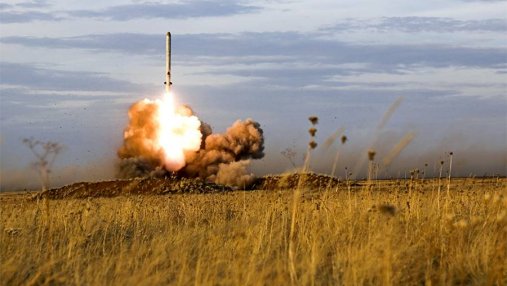
- 2018-12-06 22:00:20
Ми все одно будемо контролювати: США озвучили Росії вимоги щодо ракетного договору Рішення Сполучених Штатів вийти з Договору про ліквідацію ракет середньої і меншої дальності не означає, що Вашингтон відмовляється від контролю над озброєннями. При ц

- 2018-12-06 21:31:40

